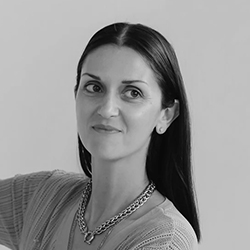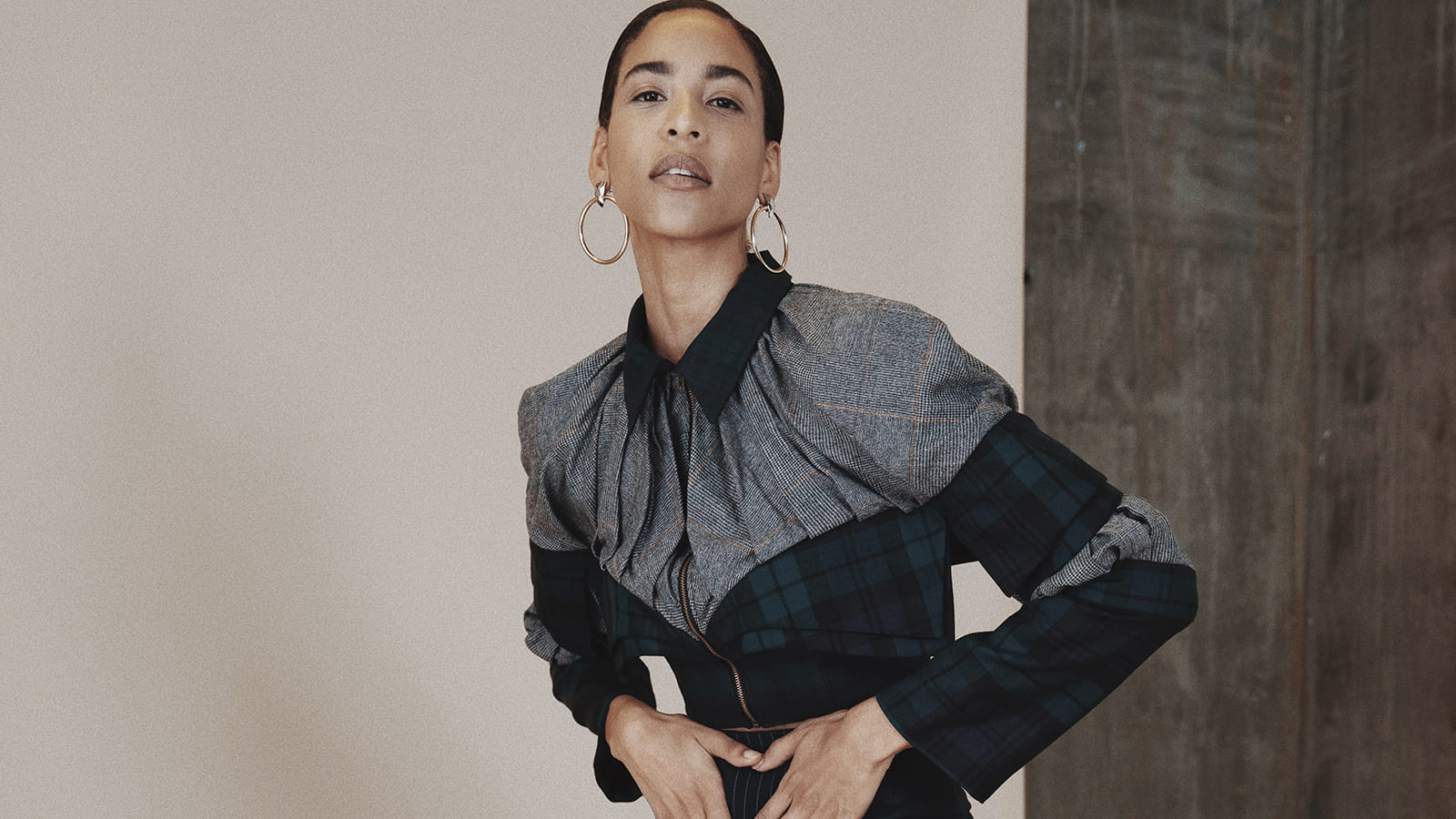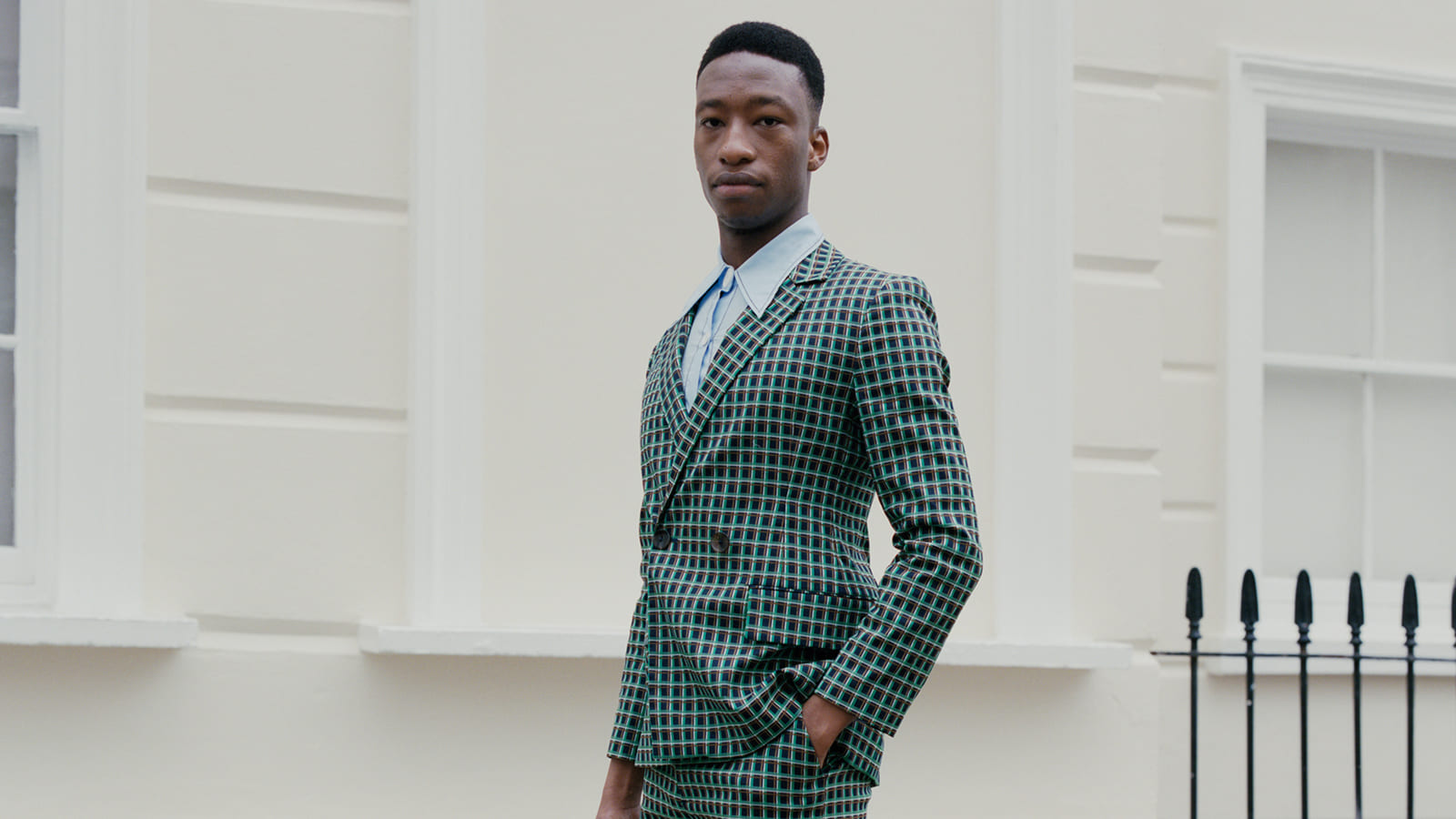- Fashion Courses
- Design Courses
- Art Courses
- Beauty Courses
- Courses for Professionals
- Luxury Hospitality Courses
- Short Courses
- Schools
- Admission
- Maze35 Magazine
- Newsroom
- I'M Alumni
- Careers & Industry Relations
- University Partnerships
- Get in touch

Fashion Business
Fashion brand and collection positioning, management skills for a fashion business plan, competitor analysis, luxury brand structure and sales capacity; these are just some of the important business practices introduced in this short course.
Short courses cover a variety of subjects, levels and duration to suit all preferences, and are also the perfect ‘taster’ or introduction to fashion programmes, useful when considering more intensive study, or for future career path development.
Week 1
Participants begin with an analysis of economic and social trends: understanding economic and social evolution and how this influences fashion consumption. The week also includes new markets and how fashion can evolve in them through expansion strategies: new brands, luxury brands and distribution chain stores, as well as style comparison.
Week 2
This week covers an overview of fashion: textiles, clothing, accessories, cosmetics, eyewear and jewelry. Participants will look at critical factors defining the success of some leading Italian brands such as Prada, Gucci, Dolce & Gabbana, including commercial international distribution chain stores such as Zara and H&M, and sportswear chain stores for example Nike. Product placement via competitor analysis is also explored.
Week 3
The objective of week 3 is to understand and identify the different distribution channels, together with a focus on e-commerce in fashion. Participants look at key marketing practices including product life cycle, function and definition of price points. Integrated communication investigates key notions in brand identity, brand image and brand equity, licensing and the importance of branding. Participants use their knowledge gained in the previous weeks, via a vocational learning approach, to work on an individual marketing plan for a chosen designer or collection.
Fashion brand and collection positioning, management skills for a fashion business plan, competitor analysis, luxury brand structure and sales capacity; these are just some of the important business practices introduced in this short course.
Short courses cover a variety of subjects, levels and duration to suit all preferences, and are also the perfect ‘taster’ or introduction to fashion programmes, useful when considering more intensive study, or for future career path development.
Week 1
Participants begin with an analysis of economic and social trends: understanding economic and social evolution and how this influences fashion consumption. The week also includes new markets and how fashion can evolve in them through expansion strategies: new brands, luxury brands and distribution chain stores, as well as style comparison.
Week 2
This week covers an overview of fashion: textiles, clothing, accessories, cosmetics, eyewear and jewelry. Participants will look at critical factors defining the success of some leading Italian brands such as Prada, Gucci, Dolce & Gabbana, including commercial international distribution chain stores such as Zara and H&M, and sportswear chain stores for example Nike. Product placement via competitor analysis is also explored.
Week 3
The objective of week 3 is to understand and identify the different distribution channels, together with a focus on e-commerce in fashion. Participants look at key marketing practices including product life cycle, function and definition of price points. Integrated communication investigates key notions in brand identity, brand image and brand equity, licensing and the importance of branding. Participants use their knowledge gained in the previous weeks, via a vocational learning approach, to work on an individual marketing plan for a chosen designer or collection.
Fashion brand and collection positioning, management skills for a fashion business plan, competitor analysis, luxury brand structure and sales capacity; these are just some of the important business practices introduced in this short course.
Short courses cover a variety of subjects, levels and duration to suit all preferences, and are also the perfect ‘taster’ or introduction to fashion programmes, useful when considering more intensive study, or for future career path development.
Week 1
Participants begin with an analysis of economic and social trends: understanding economic and social evolution and how this influences fashion consumption. The week also includes new markets and how fashion can evolve in them through expansion strategies: new brands, luxury brands and distribution chain stores, as well as style comparison.
Week 2
This week covers an overview of fashion: textiles, clothing, accessories, cosmetics, eyewear and jewelry. Participants will look at critical factors defining the success of some leading Italian brands such as Prada, Gucci, Dolce & Gabbana, including commercial international distribution chain stores such as Zara and H&M, and sportswear chain stores for example Nike. Product placement via competitor analysis is also explored.
Week 3
The objective of week 3 is to understand and identify the different distribution channels, together with a focus on e-commerce in fashion. Participants look at key marketing practices including product life cycle, function and definition of price points. Integrated communication investigates key notions in brand identity, brand image and brand equity, licensing and the importance of branding. Participants use their knowledge gained in the previous weeks, via a vocational learning approach, to work on an individual marketing plan for a chosen designer or collection.
Fashion brand and collection positioning, management skills for a fashion business plan, competitor analysis, luxury brand structure and sales capacity; these are just some of the important business practices introduced in this short course.
Short courses cover a variety of subjects, levels and duration to suit all preferences, and are also the perfect ‘taster’ or introduction to fashion programmes, useful when considering more intensive study, or for future career path development.
Week 1
Participants begin with an analysis of economic and social trends: understanding economic and social evolution and how this influences fashion consumption. The week also includes new markets and how fashion can evolve in them through expansion strategies: new brands, luxury brands and distribution chain stores, as well as style comparison.
Week 2
This week covers an overview of fashion: textiles, clothing, accessories, cosmetics, eyewear and jewelry. Participants will look at critical factors defining the success of some leading Italian brands such as Prada, Gucci, Dolce & Gabbana, including commercial international distribution chain stores such as Zara and H&M, and sportswear chain stores for example Nike. Product placement via competitor analysis is also explored.
Week 3
The objective of week 3 is to understand and identify the different distribution channels, together with a focus on e-commerce in fashion. Participants look at key marketing practices including product life cycle, function and definition of price points. Integrated communication investigates key notions in brand identity, brand image and brand equity, licensing and the importance of branding. Participants use their knowledge gained in the previous weeks, via a vocational learning approach, to work on an individual marketing plan for a chosen designer or collection.
5% VAT must be added to all the fees
APPLY NOW5% VAT must be added to all the fees
APPLY NOW5% VAT must be added to all the fees
APPLY NOW5% VAT must be added to all the fees
APPLY NOWFashion brand and collection positioning, management skills for a fashion business plan, competitor analysis, luxury brand structure and sales capacity; these are just some of the important business practices introduced in this short course.
Short courses cover a variety of subjects, levels and duration to suit all preferences, and are also the perfect ‘taster’ or introduction to fashion programmes, useful when considering more intensive study, or for future career path development.
Week 1
Participants begin with an analysis of economic and social trends: understanding economic and social evolution and how this influences fashion consumption. The week also includes new markets and how fashion can evolve in them through expansion strategies: new brands, luxury brands and distribution chain stores, as well as style comparison.
Week 2
This week covers an overview of fashion: textiles, clothing, accessories, cosmetics, eyewear and jewelry. Participants will look at critical factors defining the success of some leading Italian brands such as Prada, Gucci, Dolce & Gabbana, including commercial international distribution chain stores such as Zara and H&M, and sportswear chain stores for example Nike. Product placement via competitor analysis is also explored.
Week 3
The objective of week 3 is to understand and identify the different distribution channels, together with a focus on e-commerce in fashion. Participants look at key marketing practices including product life cycle, function and definition of price points. Integrated communication investigates key notions in brand identity, brand image and brand equity, licensing and the importance of branding. Participants use their knowledge gained in the previous weeks, via a vocational learning approach, to work on an individual marketing plan for a chosen designer or collection.
.jpg)














